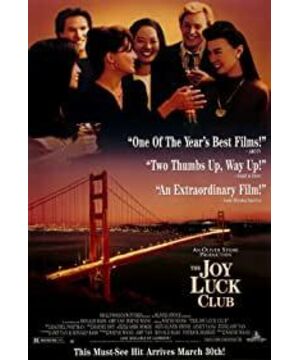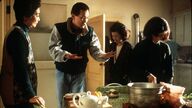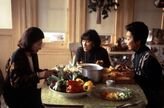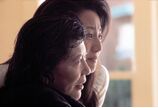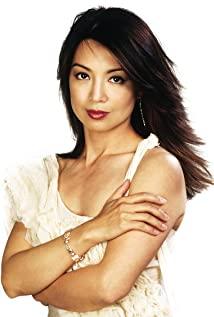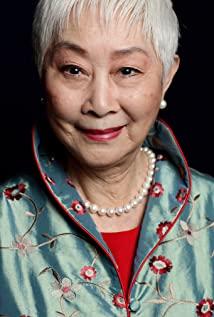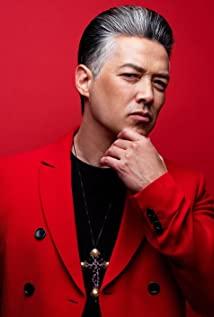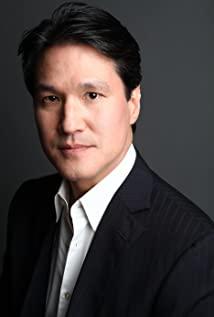The film is adapted from a novel by Chinese-American writer Amy Tan. It tells the story of some Chinese women who moved from the patriarchal society of China to the free and equal America, allowing themselves and their daughters to live a good life. While the film shows these women living in the United States, they interspersed with their experiences in China, including encounters with arranged marriages and bad mother-in-laws, married unscrupulous men, forced to abandon their own children, and so on. Through the extremely exaggerated and inaccurate depiction of China and Asian American society, it objectively vilified the image of Asians and catered to the negative stereotypes of Asians in traditional white society. Although the author is Asian and the content expresses Asian life, it is actually anti-Asian literature in essence. The specific methods of the movie are listed below.
1. Create a false impression that China is an extreme patriarchal society and the United States fully respects women's rights.
In order to portray a perverted Chinese society that abuses women, the film focuses on the characters in the play after exaggerating all the most tragic experiences possible for women. Lindo Jong grew up in China. When he was four years old, his mother arranged and betrothed to the son of a wealthy family. After the older one entered the door, he failed to get pregnant and was abused by a wicked mother-in-law. Another Chinese woman, Ying-Ying, married a Chinese man who pretended to be a prostitute after marriage and abused his wife. She was in a trance after being abused, and she accidentally drowned her young son in the bathtub.
There is no denying the fact that China was a patriarchal society in history, but this fact does not differ in the history of various nations and races. Since ancient times, in white societies in Europe and America, women have also been subordinates of men. The Bible says that "a man is the head of a woman" (1 Corinthians 11:3), and a wife must "submit her husband" (1 Peter 3:1), which is similar to the Chinese "Three Obediences and Four Virtues" of "marrying to be married". Civil rights stipulated by various laws are often limited to "white men." The United States did not pass constitutional amendments until 1919 to grant women the right to vote. In contemporary times, gender equality has become a consensus in the world, and the status of women in Asian countries is not necessarily lower than that of white Western countries. Therefore, no matter ancient or modern, the status of feminism in Asian and Western societies is not the difference between hell and heaven depicted in movies.
Second, portray a contrast between Asian males are abnormal and white males are angels.
In the play, Ying-Ying's husband in China abandons his wife and children after marriage and often stays out all night. One day his wife waited at the table for her husband to come home for dinner, but the husband returned with a prostitute and abused his wife with vicious language. Ying-Ying gave birth to a daughter Lena after immigrating to the United States. The Asian husband she married can be described as selfish and insignificant. It is required to share the bill equally with the woman when dating, and all expenses after marriage must also be shared equally. When splitting the bill, the woman’s special sanitary napkins and detergent are not counted, but the man’s exclusive ice cream must be counted. Lena has a line, "I married a Chinese man to please my mother", which sounds like it would be a shame to marry a man of the same race if it weren't to please my mother. After divorcing an Asian man, he was "saved" by the white man Richard and found "true love". The author, Amy Tan, married a white man. Other Asian males with story lines in the play are also negative images, while white males appear as "white" horse princes. It can be seen that the "freedom" of women advocated in the film is just the freedom to get rid of men of the same race and find white men at will.
3. Inadvertently revealing a white supremacy
The woman’s account at the beginning of the movie said that when I arrived in the United States, I would have a daughter. She was exactly like me, but there "no one will look down on her, because I will make her speak perfect American English". It seems to be able to speak English and "Standard American English", what a face-saving thing. It also seems that Asian women who can't speak English well deserve to be looked down upon; if they speak English with an accent, they leave Asia and enter Europe, and suddenly become masters. To be honest, the author seems to believe that minorities must imitate "mainstream" whites to increase their worth. (I am ashamed to say that the wretched man has spoken American English for so many years, and he did not feel that he was looked up to because of it.)
Fourth, the Asian parents in the
drama stereotyped Asian parents and families are all unreasonable weird people. Don’t care about their children’s feelings, force them to practice piano, play chess, and use the children as a capital to show off and satisfy their vanity after the children have achieved results. When encountering contradictions, he also showed a mean and rude appearance. The cultural conflict between the second-generation native children of immigrant families and the first-generation immigrant parents is not uncommon. On the Internet, you can often see Asian children picky about the English of their parents, and Mexican children say that the animal innards made by their parents at home are disgusting. The children of African immigrants laughed at their parents for cutting the plastic bottles and scraping the cosmetics in them. These are innocuous jokes, but the movie portrays Asian parents as dark personality images, which are obviously different in nature. Moreover, these more welcoming mergers have strengthened the stereotype of Asian family education in white society. Under the influence of this kind of stereotype, many people even equate Asian children as "high scores but low energy", thus believing that the injustice caused by Affirmative Action to Asians based on ethnicity is reasonable.
5. Ignore the facts of the Asian community as a whole and separate Asian men from women
The older generation of women in the play suffered divorce and bereavement in China, but later lived a happy life of playing mahjong every day. Why? It's because they came to America. Their daughters once encountered a perverted and disgusting husband, but they enjoyed the sweet true love after divorce and remarried. Why? It's because they married white people. The film creates an illusion through exaggerated contrast. It seems that the improvement of the status of Asian women does not rely on their own struggle or the improvement of the overall status of Asians. It has nothing to do with Asian men of the same race, but only Relying on American society, or more accurately speaking, the favored charity of the "mainstream" white society is enough. However, the fact is that Asian women and men are not two unrelated groups; in a multi-ethnic society, one race is a whole, regardless of male and female, all are honored and shameless, and all lost. When Hitley exterminated Judea, those Jewish women who married German men, could their husbands help them escape persecution? To imagine that when the overall status of a race does not improve, leaving the men of that race aside and improving the status of women alone is simply a fantasy.
All in all, this film caters to the inherent prejudice of American society towards Asians by demonizing the self of Asians, including the demonizing of the country of origin, the demonizing of the males of the race, and the demonizing of family education. Sought after, his book was known as the four best-selling books that year, and his film also won many awards. As we all know, Hollywood "mainstream" movies have dwarfed and vilified Asians for decades and hundreds of years. Even now, Asian males in movies are mostly short, ugly, timid, wretched, insidious clowns or villains. "The Joy Luck Club" claims to be an Asian literature by Asian authors, but the uglification of Asians in the film is as good as that of Hollywood. It is called Pseudo-Asian American Literature or even anti-Asian. Anti-Asian) literature is not an exaggeration. Moreover, the film uses "feminism" as a gimmick, but it advocates pseudo-feminism that is neither worthy of praise nor realization. However, many viewers only saw the superficial feminine or Asian elements and admired the film, but failed to look at the spiritual connotation secretly promoted from the perspective of Asian Americans. Hope this review can give readers some thoughts.
View more about The Joy Luck Club reviews


